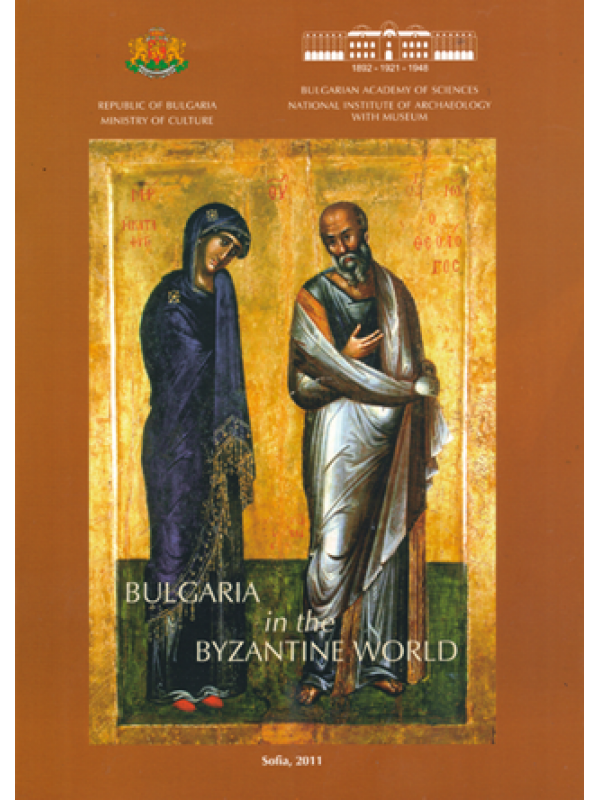Shopping Cart
0 item(s) - 0.00лв
Bulgaria in the Byzantine World
Catalogue of the exibition included in the program of the 22nd International Congress
of Byzantine Studies, Sofia, 22—27 August 2011
„Why Bulgaria within the Byzantine World? Bulgaria, established in the seventh century, was all an enemy, an ally, a rival, and a partner of the Eastern Empire we name Byzantium. Byzantium was the mightiest source of ideas, patterns, model examples and rivalry for the Bulgarians. Bulgaria belonged actively to the Medieval Christian world and shared its cultural values thanks again to its affiliation to the Byzantine circle. The most exquisite pieces of work designed for the imperial constructions of the Capital city of Constantinople were employed as model examples. The artistic heritage and the works associated with the religious practice — liturgical objects, embroideries and painted holy images add a peculiar prestige to this exhibition. Four icons present the assembly of the most remarkable works of the easel painting known from the collections of the Bulgarian museums — the ceramic icon of St. Theodore from Veliki Preslav (10th century) — the only one known of its kind, the outstanding mosaic icon of St. Virgin Mary from Thrace — a precious imperial gift (13th—14th century), the icon of St. Virgin from Nessebar in silver facing donated by the uncle of the Bulgarian Tsar Ivan Alexander (1342), and the two-sided icon from Poganovo Monastery (14th century), incredible in its artistry. A gallery of painted images from the Church of St. Nicholas in Melnik, and wall paintings from churches and artifacts from the post-Byzantine Age shape the notion of this profound wealth and illustrate the eternal relationship between Bulgaria and Byzantium.“
Preface
България във Византийския свят
| Details | |
| Publisher | National institute of archaeology with museum (Bulgarian academy of sciences) |
| Language | English |
| Pages | 48 |
| Illustrations | color photographs |
| Binding | paperback |
| ISBN | 978-954-9472-10-3 |
| Creation date | 2011 |
| Size | 21 х 29 cm |
Write a review
Your Name:Your Review: Note: HTML is not translated!
Rating: Bad Good
Enter the code in the box below:









